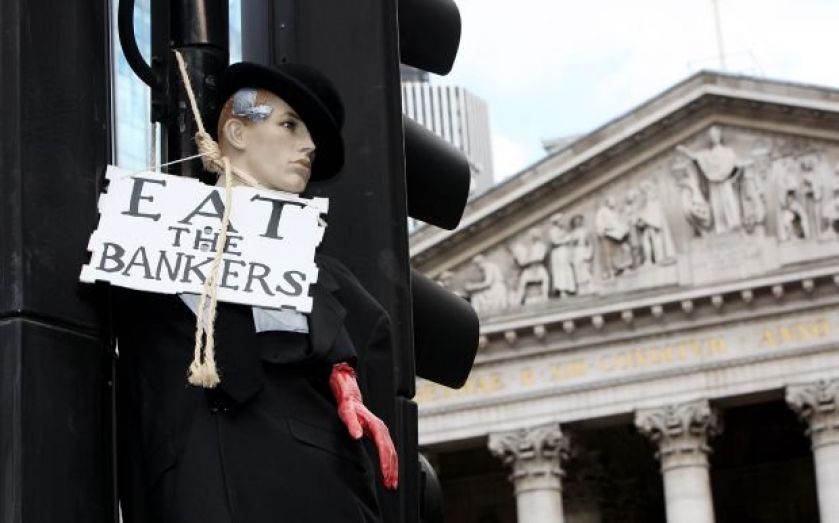| Updated:
Payback time but Bank of England’s bonus clawbacks are rife with pitfalls

Quite literally, yesterday it was payback time for Britain’s banking industry. Regulators’ demands that lenders must force staff to hand back bonuses awarded as long as seven years earlier delivers a belated sense of justice for those clamouring for more robust post-crisis retribution.
The Bank of England’s timing could hardly have been better, coming less than 48 hours after traders at Lloyds Banking Group were exposed for the most egregious misconduct to emerge from the industry so far; manipulating the repo rate which formed part of the Special Liquidity Scheme was truly jaw-dropping.
So in the court of public opinion, the Prudential Regulation Authority is pushing at an open door with its new clawback rules and backing for jail terms for reckless bankers.
It also has an eye for a headline. The proposal to ban discretionary payouts for employees of banks which have received taxpayer support will, surely, come to be known as “the Goodwin Rule”.
It’s tempting to dismiss bankers’ response as the inevitable bleating of an industry which perceives itself to be under regulatory siege.
Yet some of its concerns are well-founded. Will, for example, the taxman be ready, willing or able to repay those who have forked out hefty tax bills for bonuses they’ve spent and subsequently had clawed back without personal culpability?
It’s one thing to hold bankers more accountable for the decisions they take. It’s another to make the rules of employment so onerous that those considering a career in banking ought to resort to a sanity check first.
INSURERS ON THE SPOT
It isn’t only the regulated who are coming under closer scrutiny in the City.
The “independent” inquiry into the Financial Conduct Authority’s zombie insurance probe is gathering pace, with interviews of the protagonists now underway.
Sources tell me that some of the companies whose shares tanked on the day of the botched briefing have volunteered to be interviewed as part of the probe.
How surprising. I wonder what they might possibly have to say for themselves?
TESCO’S CHALLENGE
Credit where it’s due: Philip Clarke’s reaction to being dumped as Tesco’s chief executive last week was as dignified as it was possible to be.
At a board meeting held after the announcement of his departure, insiders say the outgoing boss came across as determined to make the transition to his successor as smooth as possible.
Determination is a quality that Dave Lewis will require in abundance when he arrives in October. There will have to be a significant strategic shift if the Unilever-bred marketer is to improve Tesco’s fortunes at home.
The fastest way to achieve that is to go where Mr Clarke – and others in Tesco’s boardroom – feared: by sucking rivals into a massive price war.
Mr Lewis could generate the resources to do so relatively easily.
Dunnhumby, the customer insight agency whose acquisition in the early 2000s was arguably one of Tesco’s best decisions, could raise £1bn if sold today, insiders believe.
It could generate much more by selling a stake in its Asian operations through a stock market listing in Hong Kong or Singapore, an idea that executives have kicked around from time to time.
Those businesses, comprising sizeable operations in markets such as Thailand and South Korea, could be worth, say, another £4bn. The proceeds could be used by Mr Lewis to inject some impetus into rebasing Tesco’s pricing. Ultimately, that’s the best route to reinvigorating its brand.
But he'll need to act swiftly. The challenge from rivals is only going to get stronger.
